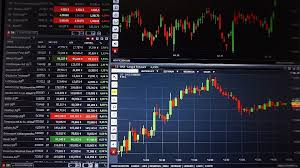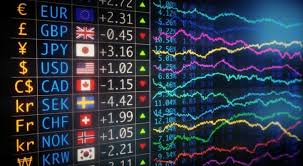A Comprehensive Beginner’s Guide to Forex Trading Basics 1824877313
Experience the Thrill at Casino Royal Fortune UK
08/11/2025Revolutionizing Forex Trading with Mobile Apps 1824899297
08/11/2025
A Comprehensive Beginner’s Guide to Forex Trading Basics
Forex trading can seem overwhelming for beginners, but understanding the basics can open the doors to this dynamic and potentially lucrative market. In this guide, we will explore fundamental concepts, key strategies, and practical tips to help you embark on your forex trading journey. For those looking to start in a specific region, consider exploring forex trading basics beginners guide Forex Brokers in Jordan for localized options.
What is Forex Trading?
Forex, or foreign exchange, refers to the global marketplace where currencies are traded. The forex market is the largest financial market in the world, with trillions of dollars exchanged every day. Unlike stock markets, which are confined to specific venues and times, forex operates 24/5, allowing trading at almost any hour of the day from anywhere in the world.
Understanding Currency Pairs
In forex trading, currencies are traded in pairs. A currency pair consists of two currencies: the base currency and the quote currency. The base currency is the first currency in the pair and is bought or sold against the quote currency, which is the second currency in the pair. For example, in the USD/EUR pair, the US Dollar is the base currency, while the Euro is the quote currency.
Major Currency Pairs
The most commonly traded currency pairs are known as major pairs, which include:
- EUR/USD – Euro/US Dollar
- USD/JPY – US Dollar/Japanese Yen
- GBP/USD – British Pound/US Dollar
- USD/CHF – US Dollar/Swiss Franc
How Forex Market Works
The forex market’s mechanism relies on supply and demand dynamics between different currencies. When a currency is in high demand, its value increases relative to other currencies. Various factors affect currency valuation, including economic indicators, geopolitical events, and market sentiment. Traders analyze these factors to make informed trading decisions.

Key Terminology in Forex Trading
To navigate the forex market effectively, it’s essential to understand some key terms:
- Pips: The smallest price move in a currency pair, typically measured to the fourth decimal for most pairs.
- Spread: The difference between the buying (ask) price and the selling (bid) price.
- Leverage: A tool that allows traders to control larger positions than their account balance would normally permit.
- Margin: The amount of capital required to open a leveraged position.
Types of Analysis in Forex Trading
To make informed trading decisions, traders often rely on two primary types of analysis: fundamental analysis and technical analysis.
Fundamental Analysis
This approach involves evaluating economic indicators, interest rates, and geopolitical events that could impact currency values. Traders using fundamental analysis look at news releases, economic reports, and global events to predict currency movements.
Technical Analysis
Technical analysis focuses on using historical price data and charts to identify potential trading opportunities. Traders analyze various indicators and chart patterns to forecast future price movements based on past behavior.
Developing a Trading Strategy
A well-defined trading strategy is crucial for success in forex trading. Here are some steps to consider when developing your strategy:

- Define Your Goals: Determine your financial goals, risk tolerance, and trading style (day trading, swing trading, position trading).
- Choose a Trading Plan: Decide on the analysis method you will use, risk management techniques, and preferred currency pairs.
- Backtest Your Strategy: Test your strategy using historical market data to assess its viability.
- Start Trading: Begin trading with a demo account if you are a beginner or start small to minimize risks in a live account.
Risk Management in Forex Trading
Effective risk management is one of the most crucial aspects of trading. A solid risk management strategy involves:
- Setting stop-loss orders to limit potential losses.
- Utilizing proper position sizing to avoid over-leveraging.
- Diversifying trades rather than concentrating all investments in one currency pair.
The Psychological Aspect of Trading
Forex trading is not just about strategies and analysis; it also involves significant psychological challenges. Emotional discipline and a strong mindset are vital in managing losses, avoiding impulsive trades, and sticking to your trading plan.
Choosing a Forex Broker
Your choice of broker can significantly impact your trading experience. Factors to consider when selecting a forex broker include:
- Regulation and Trustworthiness
- Trading Platforms and Tools
- Spreads and Fees
- Customer Support and Education Resources
Conclusion
Starting your forex trading journey requires understanding fundamental concepts and developing smart strategies. While it can be challenging, success is attainable for beginners who remain informed, disciplined, and patient. Always remember to practice good risk management and continuously enhance your knowledge. With time and practice, you can navigate the forex market successfully.
